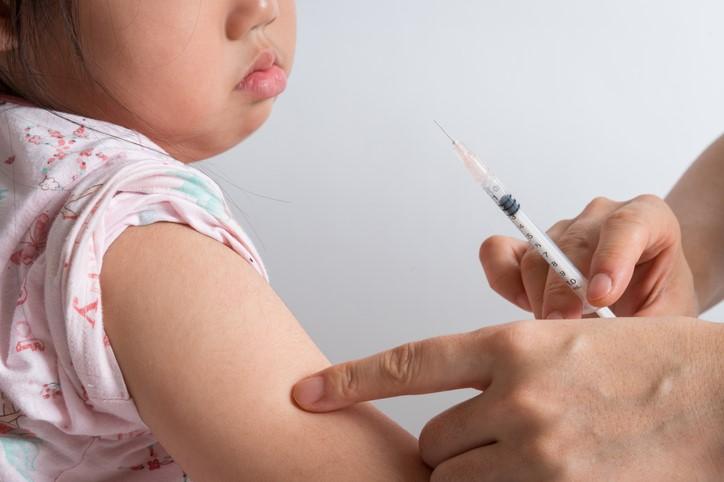A child who has never been vaccinated against pertussis, or whooping cough, is 13 times more likely to suffer from an infection of Bordetella pertussis than is a child who is up-to-date on his or her vaccines.
But new evidence from a decade-long study at Kaiser Permanente shows that vaccinated children were five times more likely to suffer from whooping cough if it had been more than 3 years since their last vaccine dose. The research was published today in Pediatrics.
DTaP vaccine, which protects against pertussis, diphtheria, and tetanus, is given in five doses between the ages of 2 months and 6 years. In this study, researchers from Kaiser Permanente Northern California followed children born between 1999 and 2016 who were diagnosed as having whooping cough.
The researchers identified 738 pertussis cases, with 99 cases in unvaccinated children, 36 in undervaccinated children, 515 in fully vaccinated children (five DTaP doses), and 88 in children who had received six doses of DTaP.
More than 80% of cases occurred in fully vaccinated children. Children only partially vaccinated were 1.9 times more likely to contract whooping cough than fully vaccinated peers.
"Although noncompliance with the vaccination schedule is an important public health problem that leads to increased pertussis risk, most children in our study received all their recommended DTaP doses," the authors wrote. "Our results reveal that waning of DTaP immunity was an important cause of pertussis in children."
In 2010 and 2014, California experienced two large pertussis outbreaks, with more than 9,000 cases each.
Waning acellular immunity
This is the third study completed by this researcher group to provide evidence of waning pertussis immunity, and the authors said results are consistent with other recent data that showed the odds of pertussis increased by 33% for every additional year after the third or the fifth DTaP dose.
Kathryn Edwards, MD, of the Vanderbilt University School of Medicine, said in a commentary on the study that the waning efficacy is likely because DTaP is an acellular vaccine, which replaced a whole-cell vaccine, DTwP, in 1997.
Whole-cell vaccines, Edwards explains, generate more protective T-cell responses. After the introduction of a whole-cell pertussis vaccine in the United States, annual rates of the disease dropped from 150 per 100,000 in the 1940s to 1 per 100,000 in the 1970s in the United States.
Though efficacious, DTwP caused more reactions than DTaP, including febrile seizures and local injection-site reactions.
DTwP is no longer available in the United States or other high-income countries, so other strategies to boost pertussis immunity must be explored, including maternal vaccination and an intranasal booster dose of the vaccine, Edwards said.
See also:
Jun 10 Pediatrics study
Jun 10 Pediatrics commentary






















